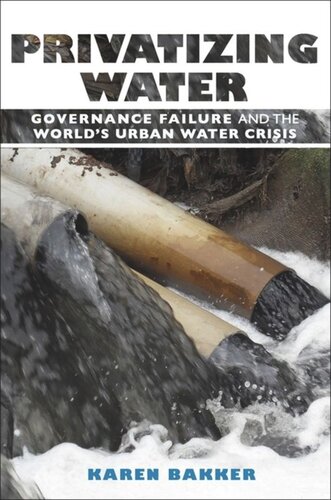

Most ebook files are in PDF format, so you can easily read them using various software such as Foxit Reader or directly on the Google Chrome browser.
Some ebook files are released by publishers in other formats such as .awz, .mobi, .epub, .fb2, etc. You may need to install specific software to read these formats on mobile/PC, such as Calibre.
Please read the tutorial at this link: https://ebookbell.com/faq
We offer FREE conversion to the popular formats you request; however, this may take some time. Therefore, right after payment, please email us, and we will try to provide the service as quickly as possible.
For some exceptional file formats or broken links (if any), please refrain from opening any disputes. Instead, email us first, and we will try to assist within a maximum of 6 hours.
EbookBell Team

4.8
94 reviewsWater supply privatization was emblematic of the neoliberal turn in development policy in the 1990s. Proponents argued that the private sector could provide better services at lower costs than governments; opponents questioned the risks involved in delegating control over a life-sustaining resource to for-profit companies. Private-sector activity was most concentrated—and contested—in large cities in developing countries, where the widespread lack of access to networked water supplies was characterized as a global crisis.
In Privatizing Water, Karen Bakker focuses on three questions: Why did privatization emerge as a preferred alternative for managing urban water supply? Can privatization fulfill its proponents' expectations, particularly with respect to water supply to the urban poor? And, given the apparent shortcomings of both privatization and conventional approaches to government provision, what are the alternatives? In answering these questions, Bakker engages with broader debates over the role of the private sector in development, the role of urban communities in the provision of "public" services, and the governance of public goods. She introduces the concept of "governance failure" as a means of exploring the limitations facing both private companies and governments.
Critically examining a range of issues—including the transnational struggle over the human right to water, the "commons" as a water-supply-management strategy, and the environmental dimensions of water privatization—Privatizing Water is a balanced exploration of a critical issue that affects billions of people around the world.